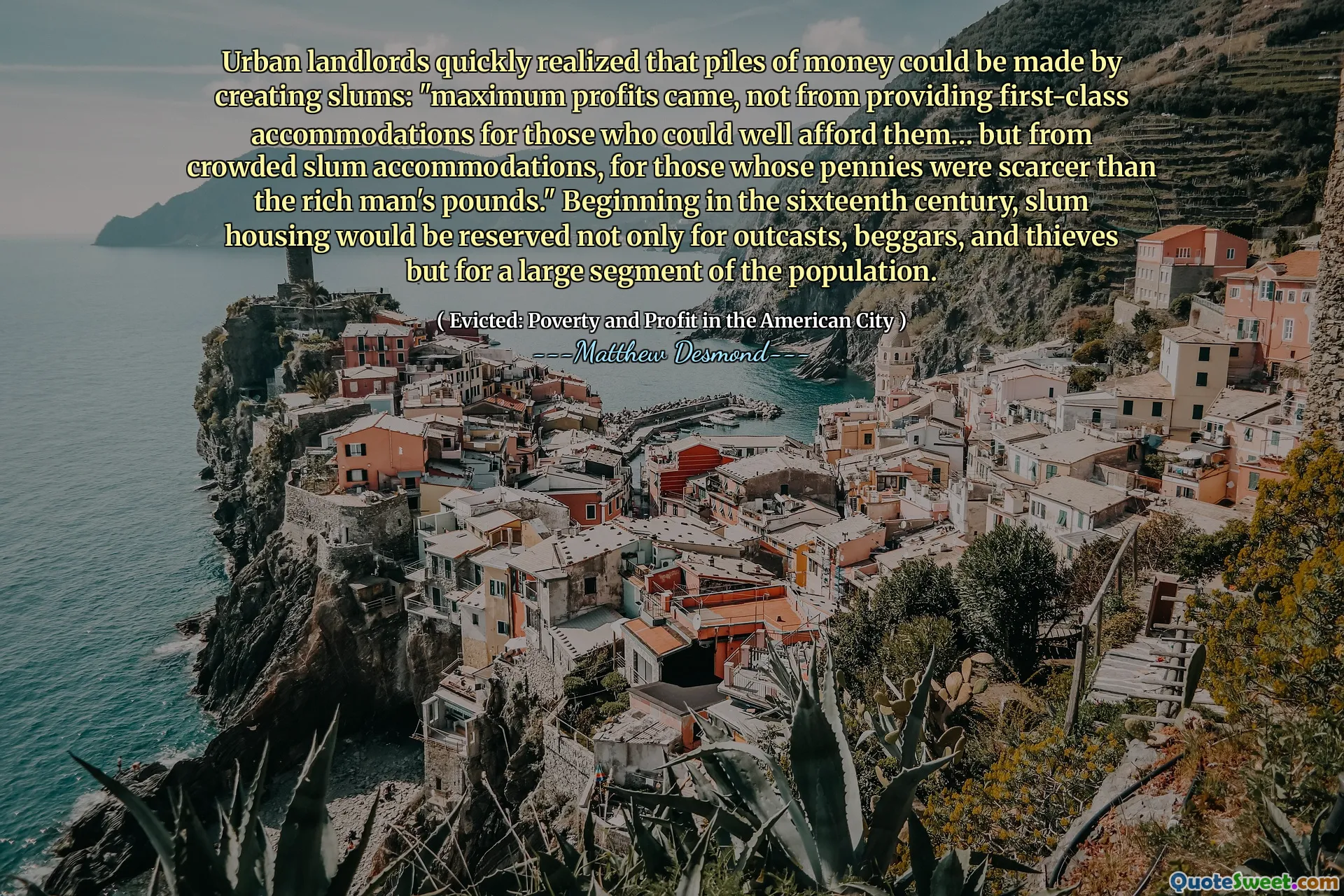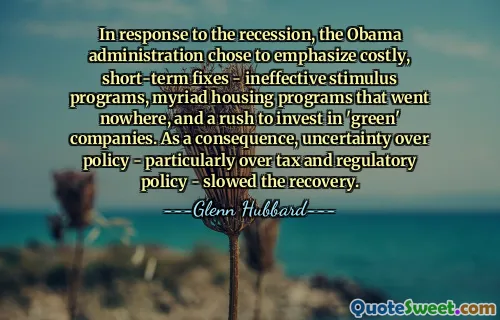
Urban landlords quickly realized that piles of money could be made by creating slums: "maximum profits came, not from providing first-class accommodations for those who could well afford them… but from crowded slum accommodations, for those whose pennies were scarcer than the rich man's pounds." Beginning in the sixteenth century, slum housing would be reserved not only for outcasts, beggars, and thieves but for a large segment of the population.
📖 Matthew Desmond
This quote highlights the historically entrenched pursuit of profit through the exploitation of vulnerable populations in urban environments. It underscores a troubling reality where economic incentives drive landlords and developers to prioritize short-term financial gains over the well-being of residents. Creating and maintaining slums as a source of cheap, overcrowded housing creates a cycle of poverty and marginalization—particularly for those who cannot afford better living conditions. Throughout history, this practice reveals how the housing market was often more driven by profit than by a moral or social responsibility to provide safe and decent living environments. This phenomenon is not limited to a specific period but has persisted across centuries, indicating systemic issues within economic and political frameworks that favor profit extraction at the expense of dignity and human rights. Recognizing this pattern is essential to addressing urban poverty and housing inequality today. It also prompts us to question how contemporary housing policies may perpetuate similar practices or whether progress has been made in prioritizing human needs over profit. The commodification of housing as a purely economic asset can lead to deep social divides, reinforcing cycles of disadvantage for the less privileged. Overall, the quote pushes for a critical reflection on the intersections between economics, social justice, and urban planning, urging societies to re-evaluate priorities in the pursuit of more equitable cities.




